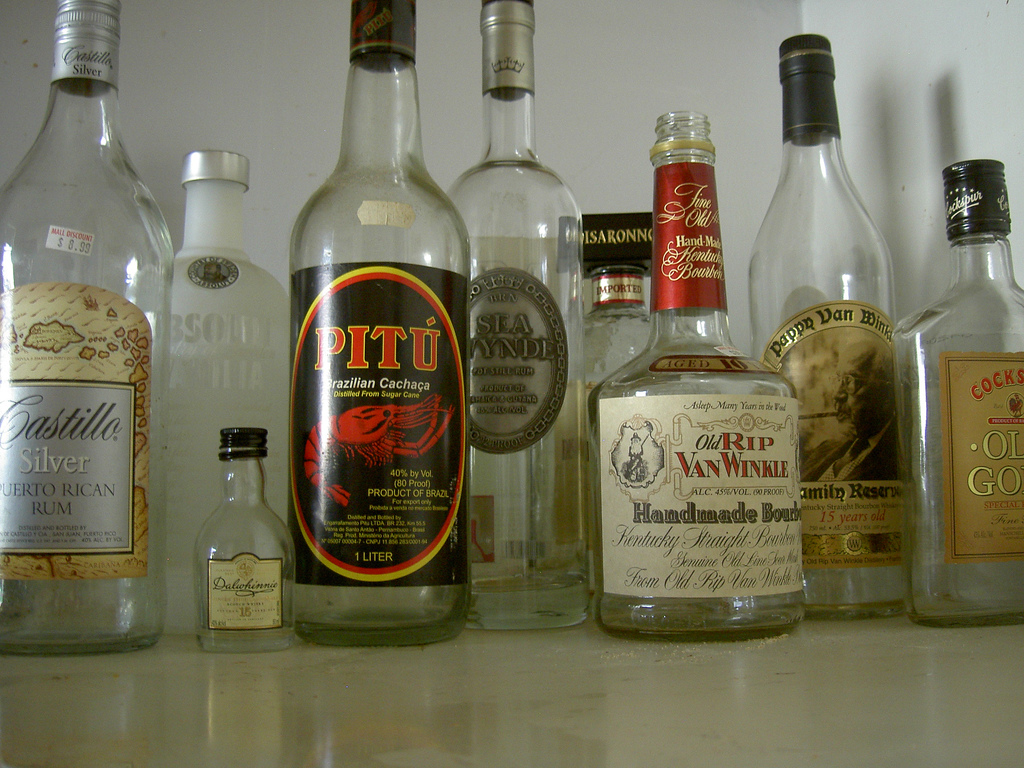Montgomery County should declare ‘Perestroika’ on liquor sales
By Andrew Moore
Commentary for MarylandReporter.com
In a 1988 speech to Reynolds Metal Company employees in Richmond, Virginia, Ronald Reagan joked about what it was like to buy a car in the Soviet Union. As Reagan tells it, a man went to a Soviet car dealership, paid upfront (which was required), and the dealer told him he’d get his new car in 10 years. “Morning or afternoon?” the buyer asked. “Ten years from now, what difference does it make?” the man said. “Well, the plumber is coming in the morning.”
The lesson we can learn today from this story is the same as it was during the Cold War and it applies to the current debate over privatizing liquor sales in Montgomery County. When government tries to control a particular industry and interfere with natural market forces, even when it comes to something as straightforward as selling cars or liquor, it leads to all sorts of problems, like inefficiency, limited product choice, artificially high prices, and corruption.
Problems in other states
Everywhere local or state governments exert direct control over the liquor industry, like in Montgomery County and approximately 17 other states or jurisdictions, exist these negative, anti-market effects. The horror stories are myriad.
In Michigan, the state monopolizes wholesale liquor sales. When the government shut down for a short period in 2007 because Michigan’s legislature and governor couldn’t pass a budget, the state’s liquor industry came to a halt. All liquor sales ceased. Employees who worked for the Michigan Liquor Control Commission, from the person stacking pallets in the warehouse to the sales people, were told not to come to work. Restaurants and bars couldn’t replenish their inventory and thousands of customers were inconvenienced.
James Short, the official in charge of Pennsylvania’s alcoholic beverage selection and acquisition from 2003-2012, faces up to 20 years in prison for accepting bribes and kick-backs in the form of private jet rides, expensive golf trips, meals, and cold hard cash.
Corruption in MoCo
Some Montgomery County Department of Liquor Control (DLC) employees have also engaged in malicious or corrupt activities over the years. Last November, a local news investigation revealed that DLC deliverymen were stealing cases of beer and selling them on the black market, sometimes even pressuring customer businesses to buy or trade for the illegal stock. Two other employees, including one truck driver, were taped drinking on the job and endangering the public by getting behind the wheel while intoxicated.
Gino Renne, president of the union that represents most DLC workers, told the Ad Hoc Committee on Liquor Control earlier this year that the committee should push for reform that makes the DLC more like a private business, but half-measures won’t solve the problem. The only way to do that is to open the market up to private wholesalers and retailers.
Opponents of reform say eliminating the DLC will result in a $30 million revenue shortfall for Montgomery County and hundreds of jobs lost. These concerns are valid, but it’s important to put them in context. DLC revenue only represents a tiny 0.6 percent of Montgomery County’s annual budget. Although some jobs will be lost, many more will be created as new private liquor stores open and begin hiring.
Rather than masquerading excuses to protect entrenched interests and their own political hides as legitimate reasons to oppose reform, Montgomery County officials should proclaim their own “perestroika” and shed their control over liquor sales.
About a year ago this author emailed a DLC bureaucrat, or “purchasing specialist”, to express his interest in purchasing a bottle of Pappy Van Winkle’s, a rare brand of bourbon that is difficult but not impossible to find locally. I never heard back.
Andrew Moore is a public affairs consultant at DDC Public Affairs in Washington, DC. Follow him on Twitter: @MooreIam. He has no client interests related to this issue.

MarylandReporter.com is a daily news website produced by journalists committed to making state government as open, transparent, accountable and responsive as possible – in deed, not just in promise. We believe the people who pay for this government are entitled to have their money spent in an efficient and effective way, and that they are entitled to keep as much of their hard-earned dollars as they possibly can.


